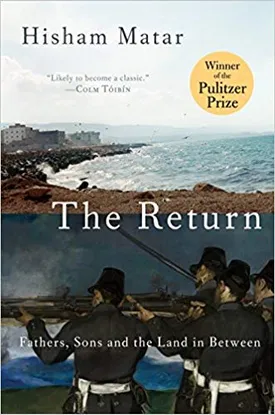Hisham Matar
Hisham Matar is a critically-acclaimed author who has won a number of awards for his work, including the Pulitzer Prize for Fiction in 2017. His substantial body of work, which ranges from novels to essays, explores themes of identity, home, and freedom in the Middle East and North Africa. Drawing on his own personal experiences and observations, Matar has created stories that are deeply affecting and thought-provoking.
Hisham Matar was born in New York City in 1970 to Libyan parents and was raised in Tripoli, Libya, until his family's exile in 1979. Matar’s father was one of the leaders of an abortive coup against Gaddafi, and his family was targeted after the coup failed. They ended up first in Cairo and then in London, where Matar has lived since 1989. Matar’s experiences of exile, conflict, and displacement have been central to his work.
Matar’s first novel, In the Country of Men (2006), tells the story of a nine-year-old boy growing up in Tripoli, Libya, during the 1970s. Through the protagonist’s eyes, the reader is exposed to the cultural and political repression of the time. The novel went on to win a number of awards, including the Royal Society of Literature’s Ondaatje Prize and the inaugural Man Booker Prize for Fiction.
Matar’s second novel, Anatomy of a Disappearance (2011) explores the devastating effects of the disappearance of a family member. Loosely based on the experience of some of Matar’s family members, the novel dives deep into the psychological toll taken by forced separation and loss.
Matar has also written a number of non-fiction works examining the experiences of his family and the political and cultural environment of the Middle East. His work The Return: Fathers, Son, and the Land in Between (2016) chronicles Matar’s journey to Libya in the hope of discovering what happened to his father who was kidnapped by Gaddafi’s intelligence agency in 1990. His latest book, A Month in Siena (2018), is a meditative exploration of art, memory, and longing.
Matar’s works have been published in several languages. He has also been invited to speak around the world, offering insights into the Middle Eastern and North African region, as well as his life as an exiled author.
Hisham Matar has been praised for his sharp and powerful writing, as well as his deep empathy for the many and varied characters whose stories he tells. As a result, his works continue to provoke discussion and provide new impactful perspectives on some of the world's most difficult issues.

